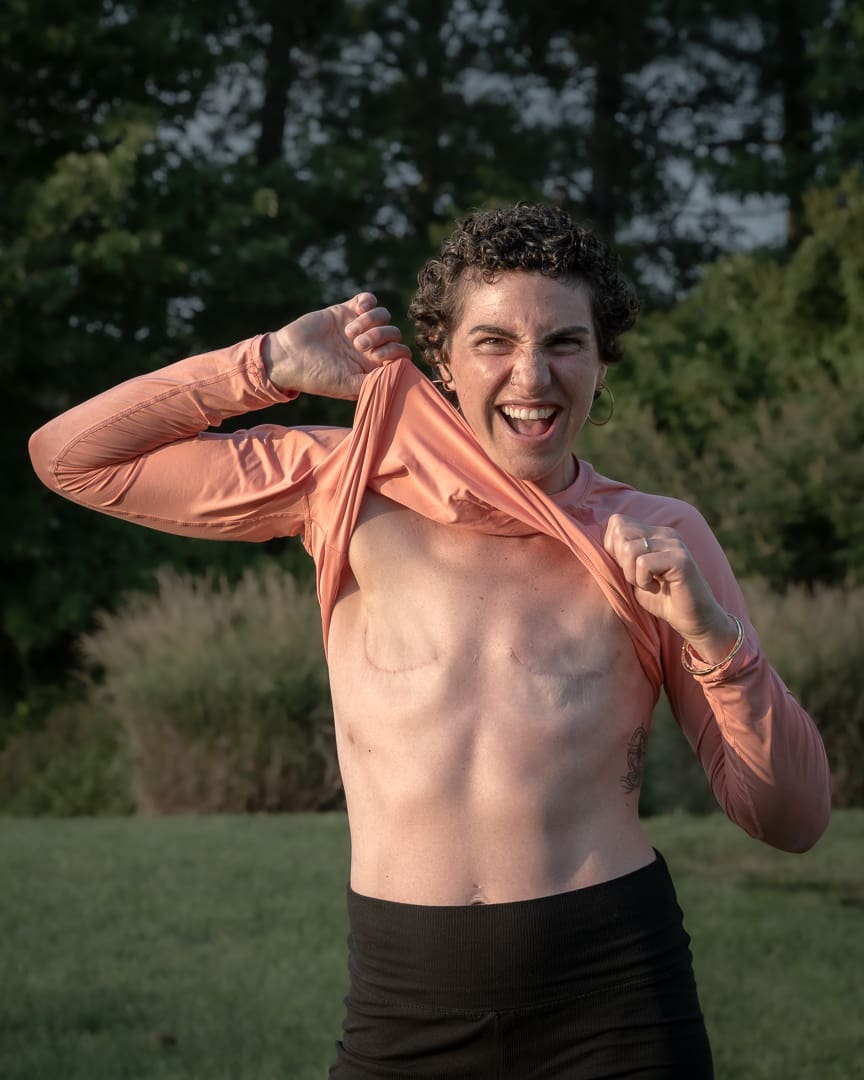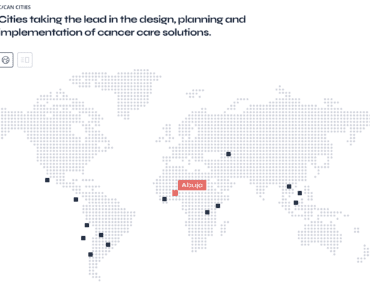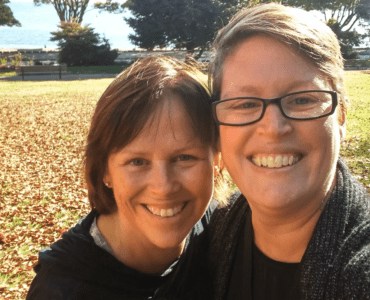A guest post by Kathleen Moss
In this blog, Kathleen Moss explores the fear of breast cancer recurrence that plagues all who have been impacted by the disease and what we can do to conquer our worries.
The news from my surgeon came with an anti-climactic ring to it: “You had cancer.” I didn’t have cancer. I had cancer. I had it and never had to be told about it until I didn’t have it anymore. I just missed the “you have cancer” moment—it passed me by. My most bold, honest and wise oncologist did tell me just a couple weeks before my mastectomy that there was a chance, “with the amount of ductal carcinoma in-situ (DCIS) you have, you might have some invasive breast cancer.” That was as scary as it ever got. She said having pre-cancer the size of mine meant I had a 50% chance of having invasive cancer. She told me this after my surgeons were already picked out and my surgery scheduled, so there was no need to panic or make new plans. I would like to have been told earlier, but to be honest, this is one thing I probably was better off not knowing.
Ductal Carcinoma In-Situ and Invasive Lobular Carcinoma
My first response on the way home from the post-op where we learned that I had indeed had 2mm of invasive lobular cancer was: Good! Now I will always know that I lost my breast for a good reason. I’d hate to have lost my breast just because they gave me too many biopsies.
I’m sure that many doctors would disagree, but the same wise oncologist who told me I might have invasive cancer agreed with me in that same meeting just before my mastectomy, when I told her that I believed that my biopsies were what caused my pre-cancer to grow and fill my breast so quickly. I knew this intuitively, and I spoke about the belief openly to most people I talked to—I was angry about it—and she was the only doctor who was willing to agree with me. She said that not every body responds badly to biopsy, but mine clearly had. She blamed my “exuberant growth factors.”
Because I had actual invasive lobular cancer (ILC) which had grown independently from the pre-cancer we could see (DCIS), I rationalized that I could now be grateful for having lost my breast rather than being resentful that the medical institution had been so eager to mess with my breast until it had to be sacrificed—two very different stories. One train of thought would have felt like victimization. The other felt like incredibly good luck.
I think it was the anger in me that responded with the gut reaction of “good!”. But the truth is, it’s not ever good to have had invasive cancer. I would have been much better off to have only had pre-cancer. The more I learn about it, the more convinced I am that invasive cancer is a curse. It’s like mold—where mold grows, it makes spores that spread everywhere and land invisibly on every possible surface. Soon, with the right combination of heat, moisture and lack of ventilation, those spores will start to grow until they’re strong, and they usually start growing in the most hidden places—places without any air or light.
Can More Be Done to Catch Breast Cancer Recurrence Earlier?
I am also convinced that cancer cells, like mold, can be killed and taken out by our immune system before they grow their food supply and become strong on their own. However, when you know they could be lying invisibly in your body, waiting for an inevitable immune weakness or environment of inflammation to emerge, it’s pretty nerve-wracking and life-altering. The places where metastasis shows up seem to be in those corners of our bodies that are hardest to see—just like mold.
On top of that, if stress is a cause of cancer gaining significant ground — and I’m convinced it is — then having had invasive cancer itself feels like a vicious cycle. It is a vicious cycle.
I wish more of my doctors could sit with the truth of this. It’s maddening to be the only one in the room who can state the reality of the situation. The real truth is, anyone who’s had invasive cancer before is likely to get it again—current stats say more than a third of us will. And then to be told “there are no good surveillance tools” is even more maddening. These days most oncologists don’t use blood markers or circulating tumor tests because they could give a false positive, or a “too weak positive to treat” result.
The problem for doctors is they can’t treat a cancer that they can’t biopsy. I think an untreatable cancer makes them feel as powerless as we do, so they teach us all that the answer is to deny that it’s a problem. Ignorance is bliss.
But I want to know if I have a recurrence, even if it turns out to be a recurrence that’s too small to verify with a PET scan or a physical biopsy because I do believe that things like exercise, diet, sleep and avoidance of alcohol will be influential factors in mitigating that risk of recurrence —not to mention the Tamoxifen that I haven’t been willing to try yet.
So, why stop testing for cancer just because the tests are too good at telling us that we have a problem?
I might have been spared the week or two of terror and dread that most cancer patients experience when they learn that there is a monster living inside them, but the daily terror and dread of recurrence is alive and well in me as it is with most of us who have experienced a cancer diagnosis. It’s what keeps me tethered to other survivors and thrivers. This is our most common struggle, for those of us who can stand to be both informed and honest.
Quelching the Fear of Breast Cancer Recurrence With Advocacy
So what do I do to quelch the fear? I keep talking to brave advocates and listening to brave researchers about what they are doing to learn about dormant cancer cells and circulating tumor DNA testing that’s being developed and perfected.
Like any other area of life, it’s easy to sit back and start to feel like a powerless victim, but I’m trying to resist that tendency because I think it’s the worst kind of malignancy—a mental one. It would mean being resigned to powerlessness instead of fighting for a better way forward—any way forward. I choose to keep fighting, both for myself and for others.
I never liked the “breast cancer warrior” meme, because I couldn’t see that I ever had a lot of power, personally, to fully defeat my cancer or pre-cancer. I might have kept it small, but only the surgeon’s knife had the possibility of cutting it out for me in the end. I learned that there was something wrong in my breast more than a decade ago and I felt as though I did everything I could do on my own—nutrition, supplementation, detox, sleep and meditation—it was not quite enough to eradicate the shadow we saw on my scans all those years ago. I believe I was able to keep it small, literally just under the radar of the ultrasounds I had every six months for all those years, but I couldn’t kill it. So, I am not a warrior in this sense, because I see my body’s and my mind’s ultimate failure to “solve” my cancer problem on my own as a big weakness, despite all the ways and all the years that I was able to keep my cancer small.
When it comes to the medical system’s apparent complacency toward my longevity, that’s a different story.
Here, I do see myself as a warrior. I feel that I can arm myself with the facts and fight for those of us who have faced breast cancer once to be given a chance to find recurrence sooner, should the cancer return to attack us again. I can make a difference for all of us by insisting on being given access to the best possible surveillance tools as they become available.
While nutrition is a murky science, we do know a few big things about how food and exercise can help reduce the risk of cancer recurrence for those who have survived it once. As a nutritionist, I can share what I know, helping other women make the best decisions for their body and health.
And finally, I can be a patient advocate warrior, sharing what I learn with my sisters, and bringing power to us all.

Kathleen Moss is a breast cancer activist and a nutritionist living in the northern foothills of the Oregon Coast Range. She writes regularly for AskEllyn.ai and Wildfire magazine, and volunteers with other advocates at Stand Tall AFC and The Lobular Breast Cancer Alliance. She’s known for her channel, “Estrogen Diaries,” on YouTube, and now her new podcast called “A Breast Cancer Diary.” If you’d like to arrange nutrition consultation or a podcast interview with Kathleen, you can reach her at ka**********@********il.com.
Kathleen’s A Breast Cancer Diary Podcast https://abreastcancerdiary.com




